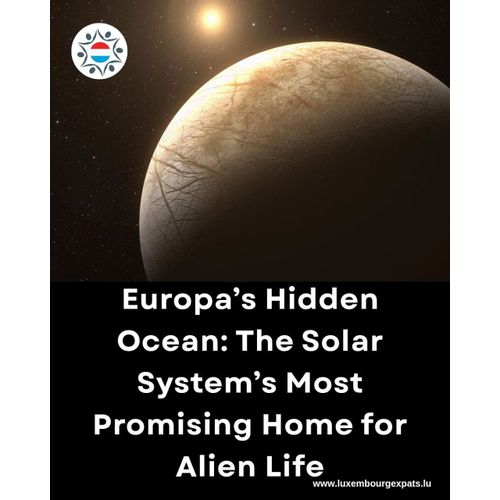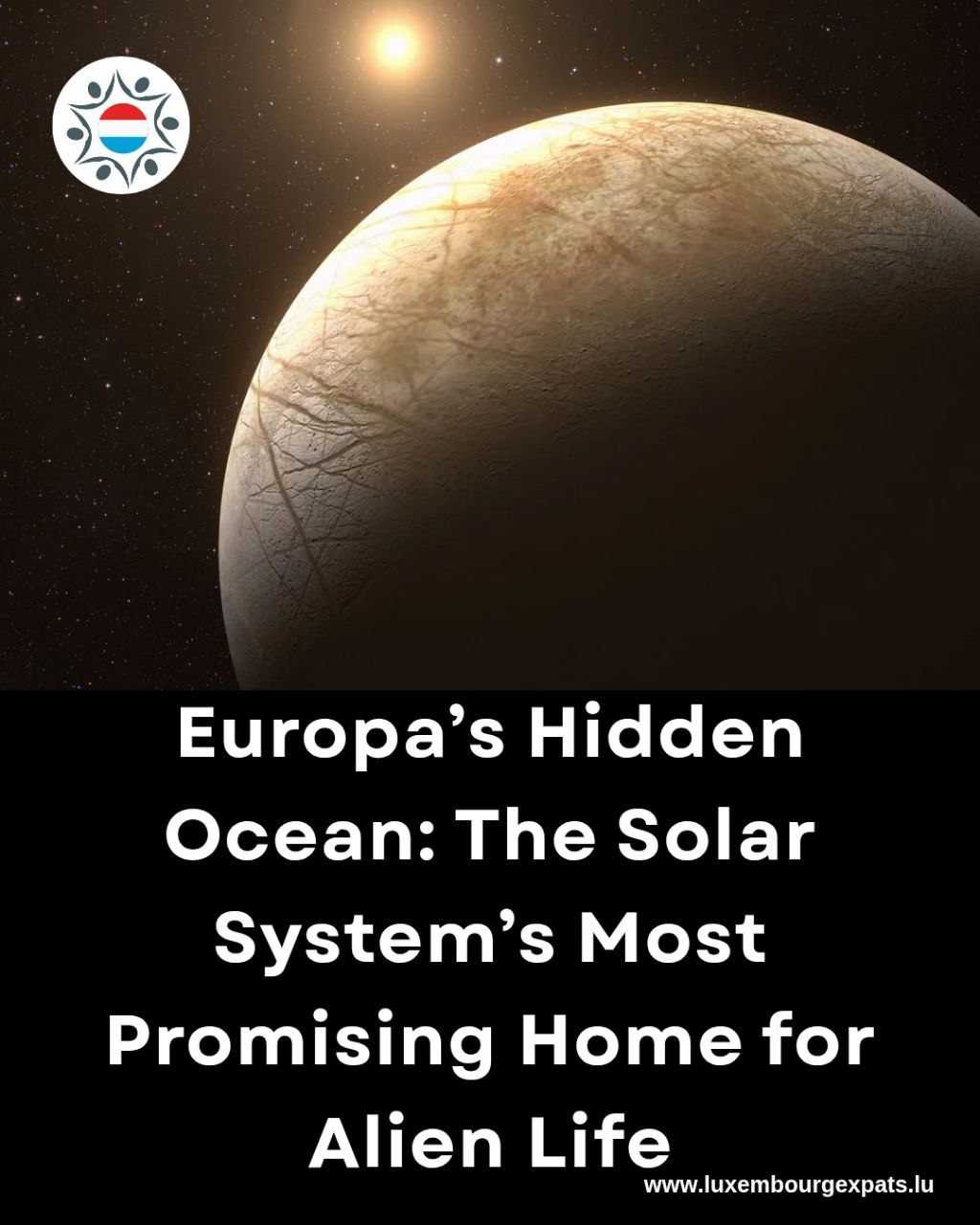Europa: Jupiter’s Icy Moon May Hold More Water Than Earth — And Could Harbor Life
LuxembourgPosted on 17 November 2025 by Team · 2 min readBeneath the fractured, frozen crust of Jupiter’s moon Europa lies a vast ocean that may contain more than twice as much water as all of Earth’s oceans combined. This extraordinary discovery, supported by decades of planetary research from major space agencies, places Europa among the most promising locations in the solar system for the search for extraterrestrial life.
Evidence of Europa’s global ocean first emerged from data gathered by the Galileo spacecraft, which detected an induced magnetic field consistent with a deep, salty and electrically conductive layer beneath the surface. Scientists now estimate that Europa’s ice crust is around 15 to 25 kilometers thick, and beneath it stretches a liquid ocean that could reach 60 to 150 kilometers in depth.
The significance of this ocean goes far beyond its sheer volume. While sunlight cannot penetrate Europa’s thick ice, the water may be heated and stirred by tidal forces generated by Jupiter’s immense gravity. This process could create warm, energy-rich environments on the ocean floor — potentially similar to the hydrothermal vents on Earth that host entire ecosystems independent of sunlight.
Researchers have also uncovered tantalizing clues about Europa’s geologic activity. The moon’s ice shell shows features resembling tectonic plates, hinting that surface material may be sinking into the ocean below. Such activity could transport chemicals and nutrients from the surface downward, creating conditions that might support life.
Adding to the mystery, scientists believe there may be pockets of liquid water trapped within the ice itself, forming shallow subsurface lakes. These reservoirs could occasionally erupt or seep to the surface, making Europa’s shell far more dynamic and active than once imagined.
In the coming years, the Europa Clipper mission will conduct detailed flybys to investigate the moon’s interior, chemistry and surface activity. Its instruments will scan for water plumes, measure the ice thickness and search for molecules linked to habitability.
If Europa’s ocean proves to be a stable, energy-rich environment, it could fundamentally reshape our understanding of where life might exist beyond Earth — deep beneath the ice of a distant, sunless world orbiting Jupiter.
Join the community of your own - #1 home-grown LuxExpats app
SignUp Free : luxembourgexpats.lu
I am your contact
Team
Chat








